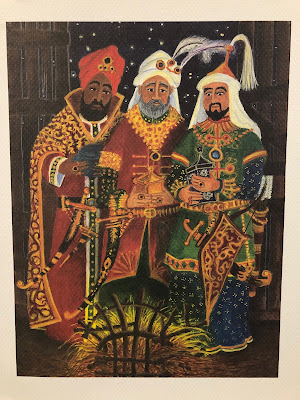After
God gave the tablets listing the Ten Commandments to Moses, the Israelites
built the Ark of the Covenant to house the tablets, along with Aaron’s rod and
a pot of manna. The Ark became a symbol of God’s presence and was carried by
the Israelites during their 40 years of wandering in the desert, and later in
advance of the Israelite army when it marched into battle. It appears that for
the Israelites, God was portable — although it can’t have been easy to
transport the gold-covered wooden chest topped by an elaborate golden “mercy
seat” and two cherubim, along with the heavy veils that concealed it.
With
the coming of Jesus, our understanding of God’s presence among us evolved. Jesus
understood himself to be one with God the Father and God the Spirit through his
relationship with them. When Jesus said to his current and future disciples, “Take
and eat: This is my body,” he was inviting us to become the dwelling place of
God ourselves.
Paul
made this clear when he said, “Do you not know that you are God's temple and
that God's Spirit lives in you?” (1 Cor 3:16) and “For we are the temple of the
living God; just as God said, ‘I will dwell in them and walk among them; and I
will be their God, and they shall be My people’” (2 Cor 6: 17-18).
No
longer do we have to lug around a golden ark to be in God’s presence. God
dwells in us; you can’t ask God to be portable than that!
Think
about the implications: Whenever we desire to be with God, all we have to do is
look within ourselves. We need never be lonely or frightened. We have a
constant companion to share our joys and sorrows and an ever-present guide we
can turn to when we are confused. We don’t have to go out and find Jesus when
we or our friends are in need of healing and mercy, as when a paralytic man was
lowered though a roof of a house where Jesus was teaching; Christ is already
within us. And when we desire the physical presence of God, we need only look
to others who also are part of the body of Christ.
What
is asked of us in response to this gift? The prophet Micah has an answer: “What
does the LORD require of you but to do justice, and to love kindness, and
to walk humbly with your God?” (Micah 6:8). It’s the least we can
offer to God who chosen us as a walking, breathing dwelling place.









